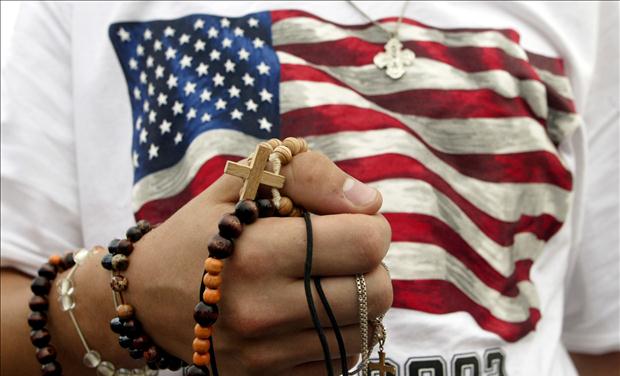Attending college has for some time been associated in the public mind with a decrease in religiosity. Now a new paper in the social science journal Social Forces argues that this association may have halted or even reversed, with individuals with a college education now more likely to be religious.
The data was extracted from the General Social Survey (GSS), a broad sampling undertaken every other year by the National Opinion Research Center at the University of Chicago.
Philip Schwadel, an associate professor of sociology at the University of Nebraska, mined the GSS to produce profiles of different age cohorts and how obtaining a college education appeared to interact with their religiosity.
Data from the GSS dates all the way back to individuals born around 1900, and Schwadel’s study says that these earliest people are the ones with the biggest gap in religiosity between those with and without college degrees. Among individuals born in the 1920s or 30s, college graduates were more than twice as likely as others to say they had no religion.
The gap narrows throughout the 20th century until individuals born in the 1960s began to attend college in the 70′s and 80s. These people, Schwagel found, had no dip in religiosity compared to the non-college educated. For those born in the 1970s, Schwadel says, the effect is reversed, with those graduating college slightly more likely to express a religious preference than those who did not.
Since the study was assessing long-term trends, it stops in the 1970s and does not look at students born in the 80s or 90s who have only begun to leave school in recent years.
Schwagel suggests several possible reasons for the change over time. One possible cause is simply the dramatic expansion of college education over the past century. With more students attending college, various middle- and lower-income groups associated with high religious identification may be attending college and sustaining their religious identity. There may also be more religious resources on college campuses that make it easier for students to stay engaged with their faith during their years of study.
Schwagel told Phys.org that another factor is simply the rapid increase in those not attending college who are not religious.
“[T]he growth of the unaffiliated over the last couple of decades is disproportionally among the less educated,” Schwagel said.
Despite its scope, the resulting data has some shortcomings. It does not break down college graduates by type of college, nor did it probe past stated religious identity to discover how observant a person said they were. Therefore, it’s possible that college graduates could identify with a religion at the same rates as others, but be less religiously active. On the other hand, the lack of detail could also mask a higher degree of religious involvement among the college-educated.





2 comments